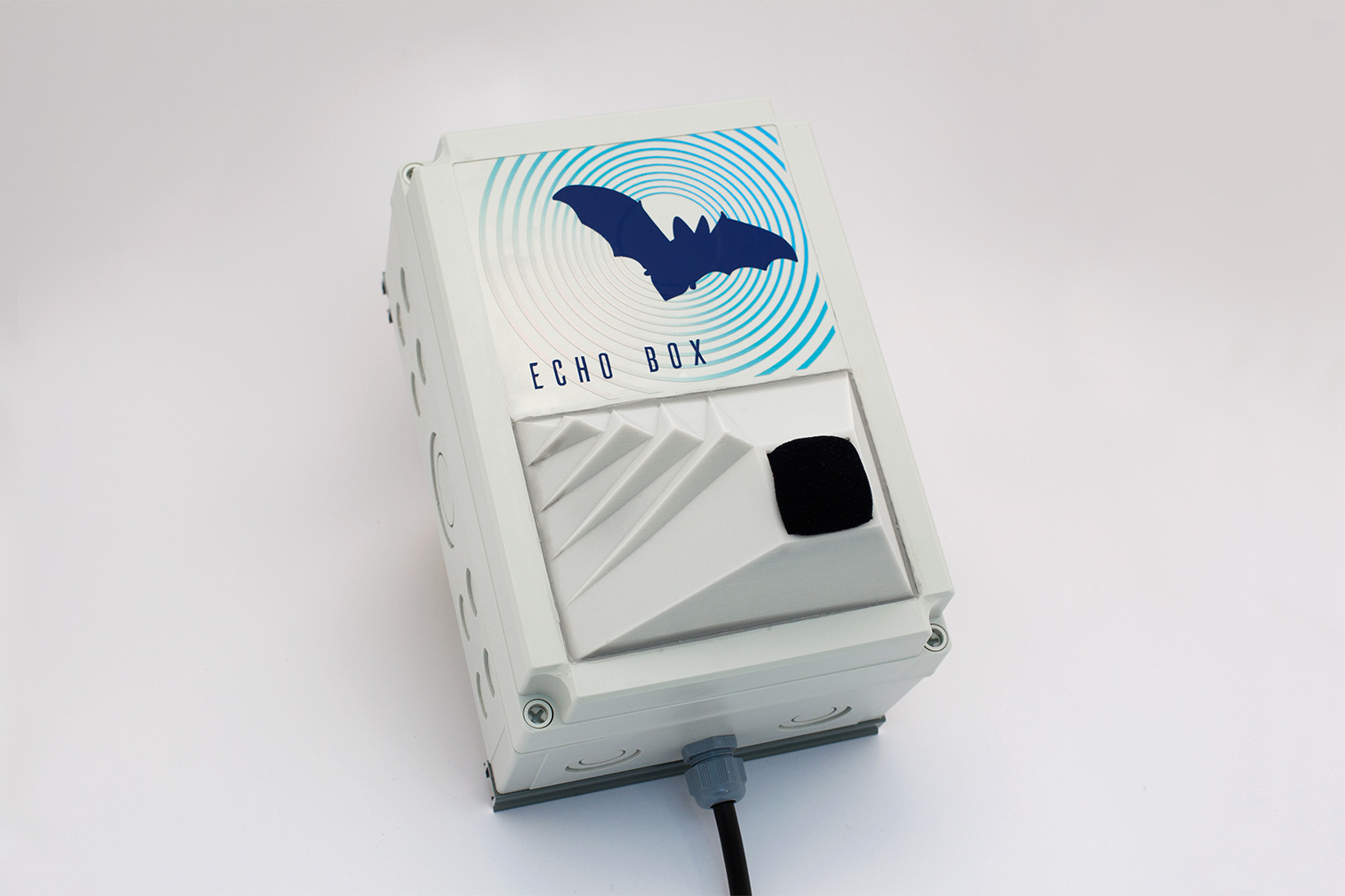
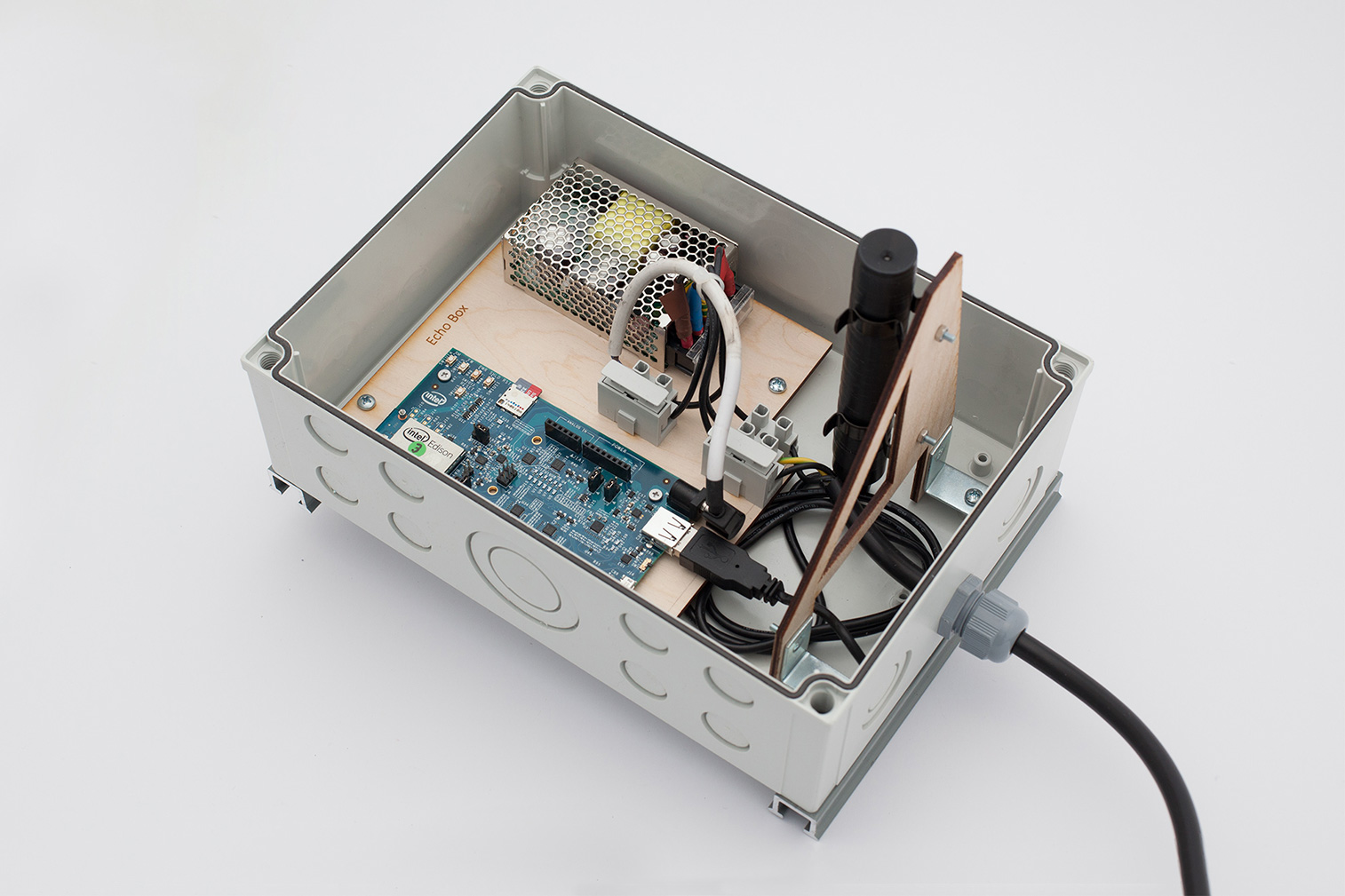
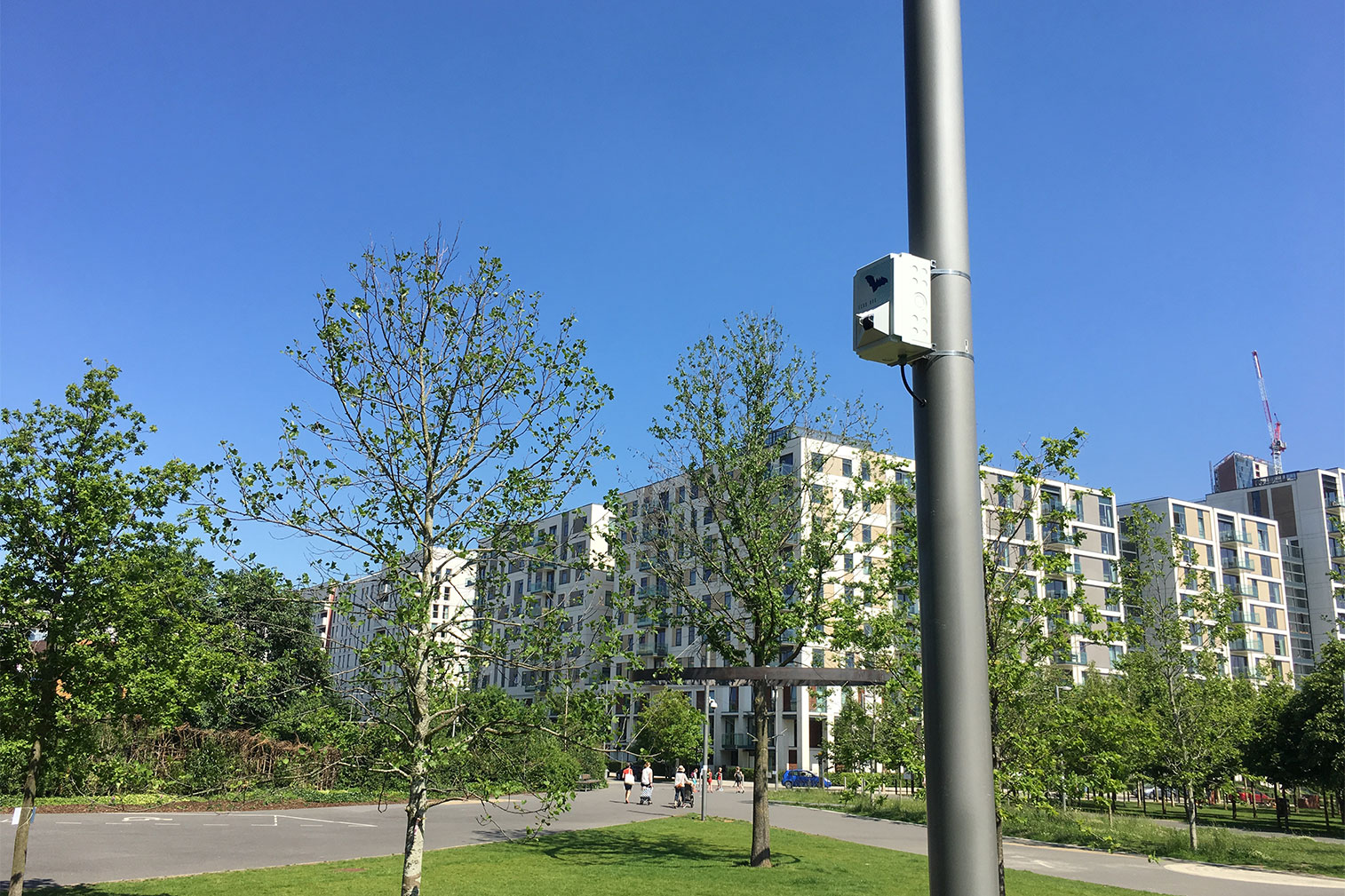
Nature Smart Cities
(2016)
Objective
Nature Smart Cities brought together environmental researchers and technologists to develop the world’s first end-to-end open source system for monitoring bats. It is deployed and tested in the Queen Elizabeth Olympic Park, east London.
Bats are considered to be a good indicator species, reflecting the general health of the natural environment. The project aimed to develop a network of prototype bat monitors and install them across the park in different habitats. It is hoped that this exploratory network of
Nature Smart Cities brought together environmental researchers and technologists to develop the world’s first end-to-end open source system for monitoring bats. It is deployed and tested in the Queen Elizabeth Olympic Park, east London.
Bats are considered to be a good indicator species, reflecting the general health of the natural environment. The project aimed to develop a network of prototype bat monitors and install them across the park in different habitats. It is hoped that this exploratory network of
devices will provide the most detailed picture yet of bat life throughout this large urban area.
Each bat monitor – Echo Box – works like “Shazam for bats”. It captures the soundscape of its surroundings through an ultrasonic microphone, then processes this data, turning it into an image called a spectrogram. Deep learning algorithms then scan the spectrogram image, identifying possible bat calls. We are also working towards identifying the species most likely to have made each call.
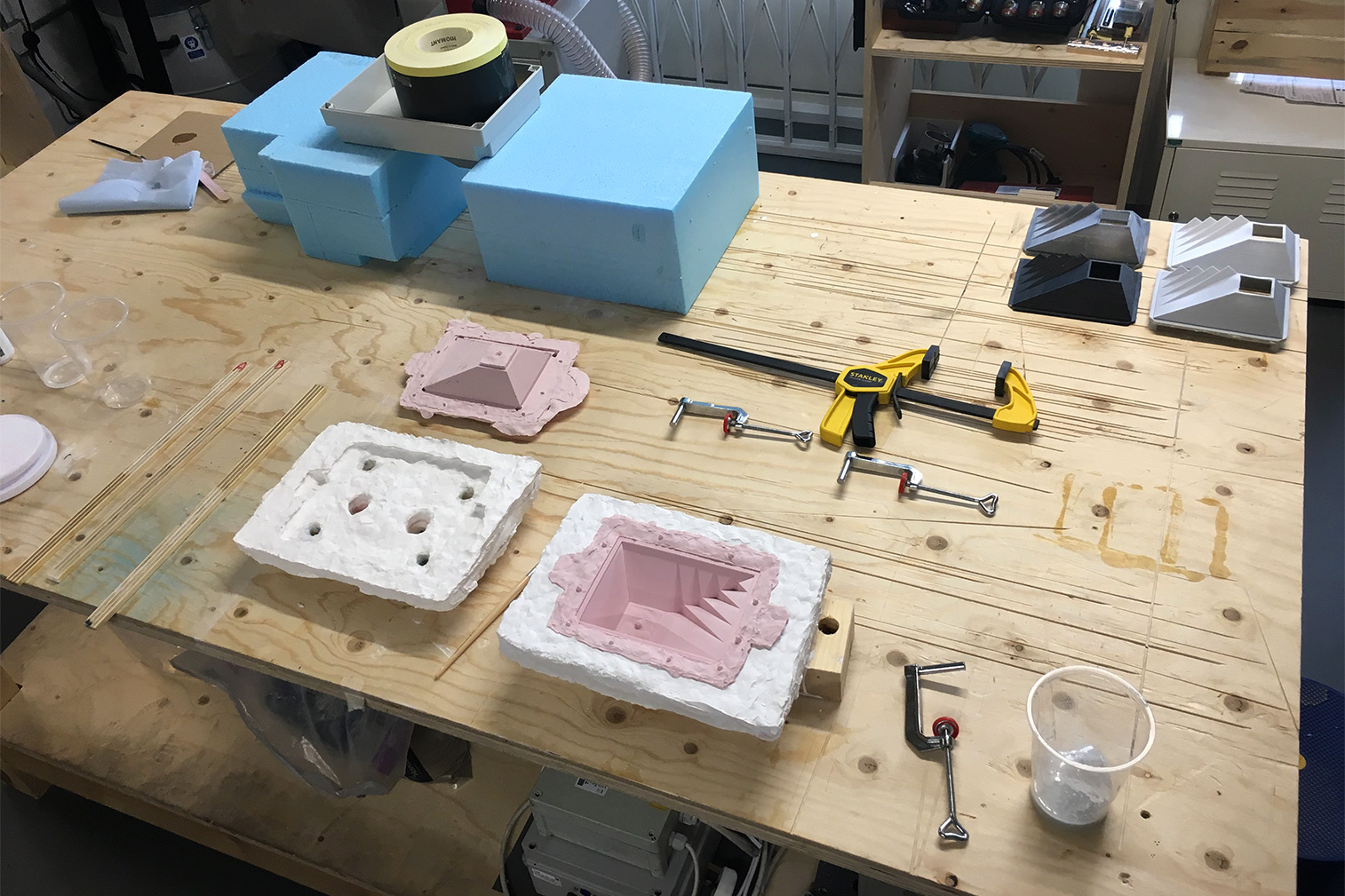
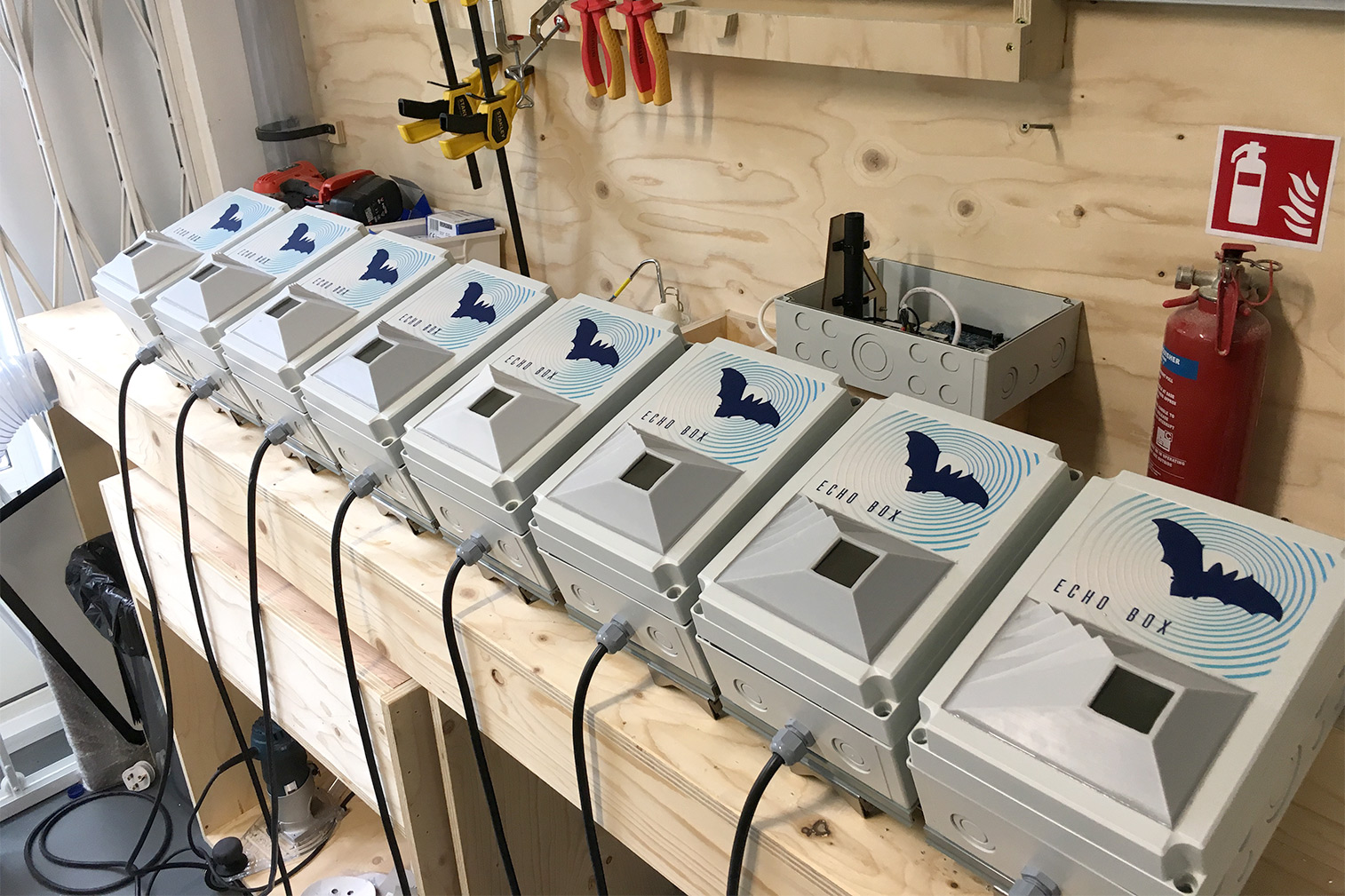
Role
Research around the role of enclosures in deploying prototypes in the wild. How do we move past the gray IP rated box and engage the wider public, while also developing a prototype that can function reliably in an outdoor environment.
Producing the resin insert that houses the microphone. This entailed creating a silicon mould of the 3D printed shape
and casting the inserts in resin, a material that has the required propererties for an extended outdoor deployment.
Design of the waterproof vinyls. My role also involved creating infographics and demo objects.
Partners
Intel ICRI, University College London, Bat Conservation Trust, London Wildlife trust, Arup, London Legacy Development Corporation, QEOP
Intel ICRI, University College London, Bat Conservation Trust, London Wildlife trust, Arup, London Legacy Development Corporation, QEOP
© Simona Ciocoiu 2017